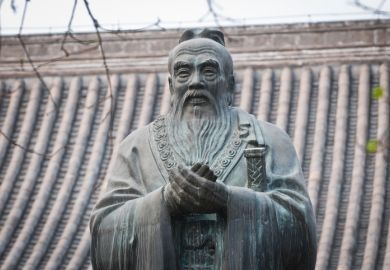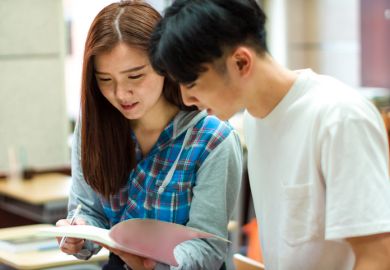A committee of MPs has criticised the Foreign and Commonwealth Office for its “non-existent” guidance to UK universities on potential threats to academia from autocracies, after hearing reports of scholars in the UK being bugged in discussions about Russia, and those studying Central Asia receiving threats against their families.
The House of Commons Foreign Affairs Committee published a report examining the UK’s foreign policy regarding autocracies on 5 November, singling out the potential infringement of academic freedom for UK universities as a key issue.
The committee recommends that the FCO and universities should “develop together a strategy to address the challenges posed by autocracies to UK universities”, and a “Whitehall Champion” should be appointed to “oversee government efforts to protect academic freedom in the UK and share best practice with universities”.
The committee says that it heard “alarming evidence about the extent of Chinese influence on the campuses of UK universities”, adding that despite the fact that “there are now over 100,000 Chinese students in the UK, the issue of Chinese influence has been the subject of remarkably little debate compared to that in Australia, New Zealand and the US”.
Christopher Hughes, professor of international relations at LSE, appeared as a witness before the committee, telling MPs that Chinese students in the UK are being “manipulated and used” by the country’s embassy. He also said that a research centre director, whom he did not identify, lost their job in a row over funding from a foreign state.
The committee was also told by Peter Duncan, associate professor of Russian politics and society at UCL, that a Russian government-sponsored body, Russkiy Mir, is active on UK campuses.
He told the committee: “I have personal knowledge of a Russkiy Mir employee planting a bugging device to record an academic discussion on Russia held by the British International Studies Association in Edinburgh.”
The committee says that it also “heard evidence that Central Asian autocracies also put pressure on UK academics”.
John Heathershaw, professor of international relations at the University of Exeter, told the committee that “travel bans, ‘interviews’ with the security services, detentions for hours and days, and threats against family members by authorities, are commonplace for academics working on projects with UK universities”.
The committee report says that “university representatives who gave evidence to the inquiry did not acknowledge this issue”.
It also warns: “There are strong signs that the FCO is not treating the issue of interference in academia as the priority it should be.”
The MPs say: “The FCO’s role in advising universities on the potential threats to academia from autocracies is non-existent. There is no evidence that it has considered the threat from autocracies to academic freedom, which underpins the quality of UK higher education, nor engaged sufficiently with other departments to develop a co-ordinated response.”
Calling for an FCO and universities strategy to address the issue, the committee says that as a “starting point, the government should examine mounting evidence of foreign influence in UK universities to fully understand the extent of the problem. This strategy should examine the extent to which market incentives [to build foreign links] may serve to undermine academic freedom in the UK.”
The committee report calls for the government to “share with us in confidence the details of this strategy by Autumn 2020.”
Register to continue
Why register?
- Registration is free and only takes a moment
- Once registered, you can read 3 articles a month
- Sign up for our newsletter
Subscribe
Or subscribe for unlimited access to:
- Unlimited access to news, views, insights & reviews
- Digital editions
- Digital access to THE’s university and college rankings analysis
Already registered or a current subscriber?




